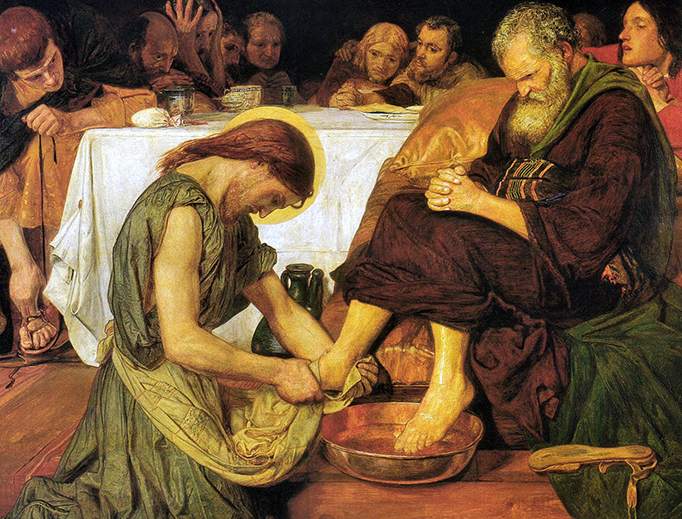Chastity Means Loving as Christ Loves
When praised, we should say, “We are only ungrateful servants,” and get back to the business of washing feet

Scandal in the Church always leads to calls for the Church to change her teachings, to make it easier for people to “toe the line.” Surely, the Church can see how unreasonable her teachings must be if even her own cardinals, bishops and priests fail to live up to the standards. Surely, the Church pews would be packed to the gills if she just were reasonable about all things regarding sex. No chastity, no problems with birth control or abortion, and no problems with anyone wanting to sleep with anyone else, provided it’s legal or at least consensual.
The Church teaches chastity not because it wants to control how we act but to help us learn how to love as Christ loves. Ergo, there are three paths by which we may begin to understand the depth of God’s love through our own lives. One is single, one is religious, and one is married life.
With respect to sex, the Church teaches that all of us, regardless of which path we choose, be chaste. Chastity is a virtue, wherein we do not allow ourselves to be ruled by sexual appetites. It does not mean prudish or cold or being afraid of sex. It means not being immoderately controlled by desire as manifested by not engaging in masturbation, porn, prostitution, adultery, fornication, extramarital sex, homosexual acts, rape, artificial birth control, surrogate parenthood or artificial insemination. We cannot divorce sex from its context (marriage) or its purpose (unitive and procreative). No one escapes the reality that sex is a gift with a particular context, and all else is an abuse of liberty and authority and a using of others. Everyone has a stake in this reality, of learning how to give of the self, if we would love God and love others as God loves.
Priests and religious make a gift of their whole selves to God, to serve His bride, the Church. The husband and wife make a gift of their whole selves to God to serve each other and become the domestic Church. These are the spiritual and physical realities we’re called to live out. The unmarried are to hold their own dignity in such regard that they do not use others or themselves, making of their lives a gift to the community by what they do and say, and what they don’t do and don’t say. We are all to be giving ourselves to the Body of Christ. It is because following Christ involves not being in the business either overtly or covertly using anyone for sex that we can’t change these teachings. They all require that we never allow for someone to be treated as a thing, whether ourselves or another — that we never allow ourselves or others to be discarded, used, emptied, or destroyed. We could not use Christ. We cannot use each other. Scandals reveal how right the teaching is by how much wrong, pain, hurt and damage is inflicted by failure to obey.
Married life demands fidelity, faithfulness and fruitfulness from its married couples, meaning we must live with the reality, we may have 10 children, we may have five, we may have one with a disability, but we must be open. It is a perpetual faith walk, and it is difficult because it involves forever. It involves surrendering our bodies, our careers, our ambitions, our youth, our finances, our futures, all of it — and because we love, we’re to do it willingly and not count the cost.
That level of self-sacrifice, of willing one’s self to be on the cross out of love for others, is the reality of every person’s vocation if they will to do God’s will. It is to sell everything to win heaven. We are all to sell everything and follow Him, to be exclusive to each other as spouses, to be chaste in all things, to be celebrate. At best, we are to be each other’s servants, and when praised, to say “we are only ungrateful servants,” and get back to the business of washing feet.













